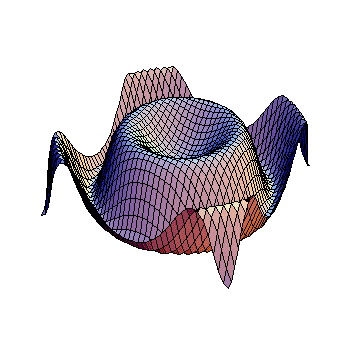#sqrt(7) + sqrt(7^2) + sqrt(7^3) + sqrt(7^4) + sqrt(7^5)#
The first thing we can do is cancel the roots on the ones with the even powers. Since:
#sqrt(x^2) = x# and #sqrt(x^4) = x^2# for any number, we can just say that
#sqrt(7) + sqrt(7^2) + sqrt(7^3) + sqrt(7^4) + sqrt(7^5) =#
# sqrt(7) + 7 + sqrt(7^3) + 49 + sqrt(7^5)#
Now, #7^3# can be rewritten as #7^2*7#, and that #7^2# can get out of the root! The same applies to #7^5# but it's rewritten as #7^4*7#
#sqrt(7) + sqrt(7^2) + sqrt(7^3) + sqrt(7^4) + sqrt(7^5) =#
# sqrt(7) + 7 + 7sqrt(7) + 49 + 49sqrt(7)#
Now we put the root in evidence,
#sqrt(7) + sqrt(7^2) + sqrt(7^3) + sqrt(7^4) + sqrt(7^5) =#
# (1+7+49)sqrt(7) + 7 + 49#
And sum the numbers that are left to sum
#sqrt(7) + sqrt(7^2) + sqrt(7^3) + sqrt(7^4) + sqrt(7^5) = 56 + 57sqrt(7)#
There is a way to find the general formula for these sums using geometric progressions, but I'm not gonna put it here because I'm not sure if you've had it and to not make this much too long.

